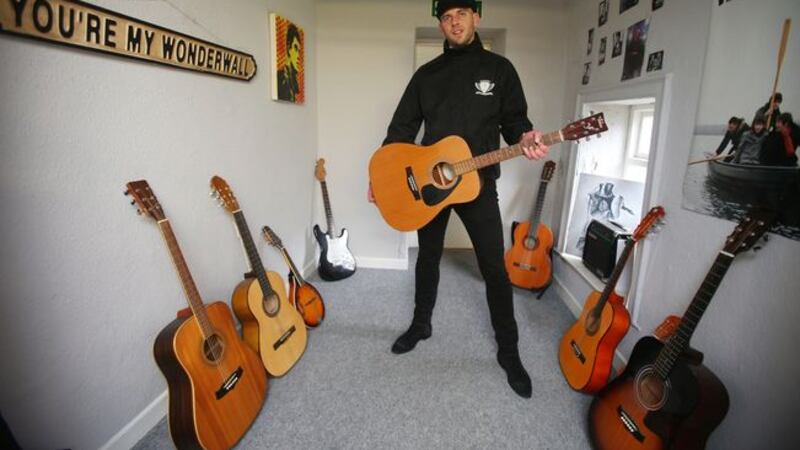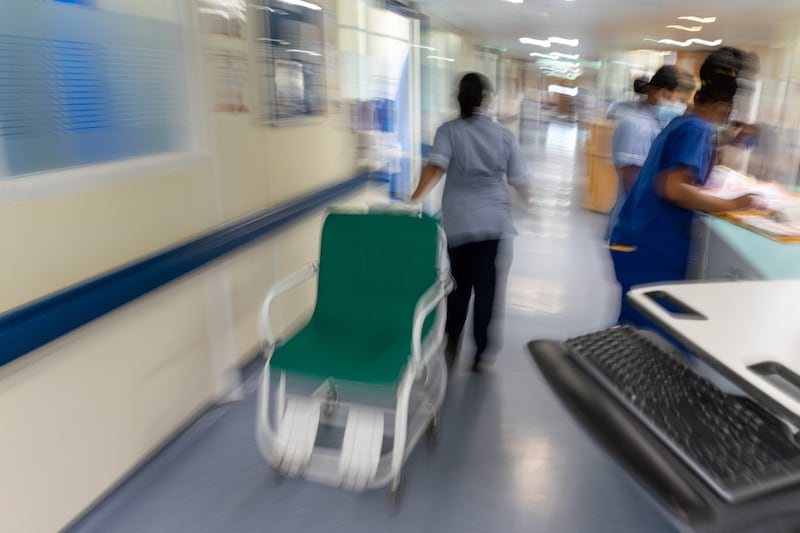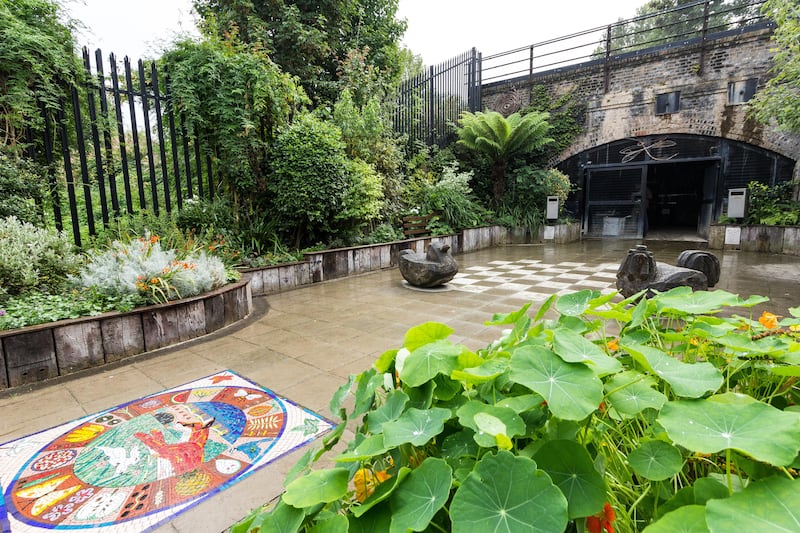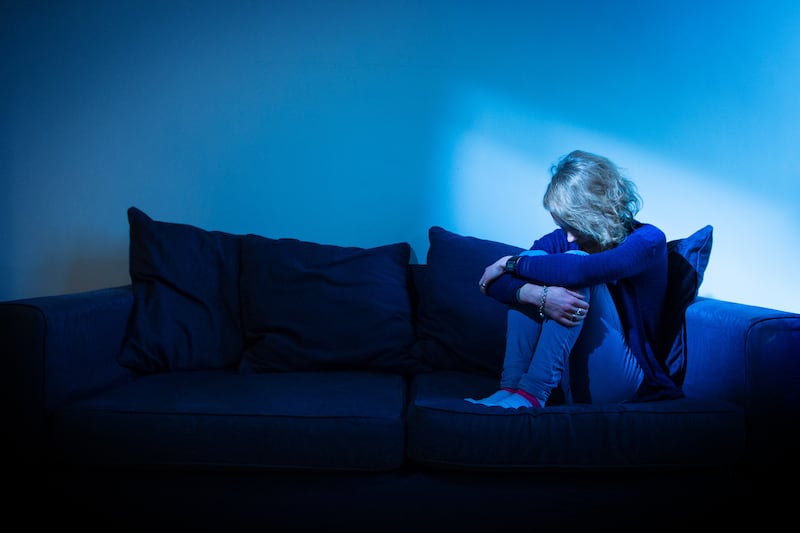“What we hear all the time is people saying ‘I wish I had done this years ago’.”
Martin Rafferty, of M.D Rafferty Music School in Armagh, has been teaching for almost a decade, but even he was surprised by the upsurge of interest in music during lockdown.
With major online retailers reporting a spike in the sale of musical instruments during lockdown, Mr Rafferty said continuing to learn and play music has helped his students’ and tutors’ mental health.
“With lockdown you’re kind of in a prison in your own home,” he said.
“To be able to pick up a guitar or another instrument and play it is so good.”
He said music is now being recognised as an important factor in improving people’s mental health.
“Around May we started getting new students onboard,” he said.
“We all assumed that once the pandemic hit, and a lot of people would be out of work, that we would be counted as a luxury.
“But we came to realise that we went from a luxury to a necessity. Students wanted to learn for their mental health and to have normality. That was the biggest surprise for us.”
[ READ MORE: The New Normal: Linda Ervine on her battle with post-Covid symptomsOpens in new window ]
The 34-year-old, from Armagh, has been running his business for almost a decade.
With students ranging from five to 75, the school offers classes in guitar, bass, piano, mandolin, banjo, ukulele, drums and singing.
Students can learn rock and pop songs as well as some traditional tunes, classical music and music theory.
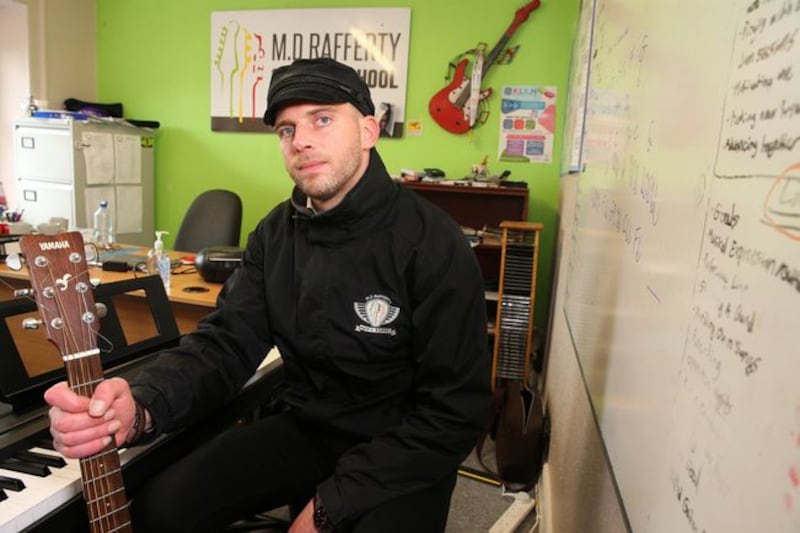
Lockdown has also prompted some students, including Mr Rafferty’s nine-year-old nephew Cillian Rafferty, to write their own songs.
The Armagh CBS primary school pupil penned his first song ‘What About Us?’ at the heigh of the pandemic.
“He started with us when he was about six. I taught him at the start. He’s doing a bit more technical stuff so our tutor Conor now has him as well.
He added: “His mum had said to him ‘what do you want to write about?’ and he said he wanted to write about the pandemic. It was around the time that everywhere was closed and they had no interaction with anyone. He was singing about the schools being closed and the zoos being closed. You forget that they (children) were also hit by it.
“For a nine-year-old, I wasn’t even expecting that. Even the melody and chords - I just couldn’t believe how good it was. It blew me away.”
Mr Rafferty, who teaches guitar, piano, ukulele and vocals, said he highlights the basics of songwriting but the end results are the students’ own work.
“I would teach people how to write a song and what the ingredients are within a song - your verse, bridge, chorus,” he said.
“We heard from some of the parents that in some of the kids there was a wee bit of withdrawal as lockdown went on... With playing your own songs and writing your own music it’s a way of expressing yourself, so I think it helps in that small way.”
Mr Rafferty said most students are pleasantly surprised when they take up an instrument.
“What we hear all the time is people saying ‘I wish I had done this years ago’,” he said.
“I had a new student in last night. He’s 45 and he literally just started. He said he was a bit nervous and wasn’t sure how to hold a guitar. I said ‘don’t worry about it and showed him the first few chords’. He was as happy as Larry, he couldn’t believe how well he took to it.
“The guitar isn’t a hard instrument to learn. You don’t need to practice for six hours a day. If you even do half an hour a day you could easily be singing and playing (a song) in a few weeks.”
The school focuses on performance and playing as part of a group but some students also opt to learn musical theory and sit traditional grade exams.
“The majority of the school would be kids coming and saying I want to learn this song by Ed Sheeran or Gerry Cinnamon or Oasis,” he said.
“Then you have students who come in and want to learn a bit of theory and scales. Then you have other students who just want to come in for a wee release.”
Mr Rafferty said the speed of lockdown meant that the business closed its doors on Monday, March 16, and transitioned to online lessons on Wednesday, March 18.
“The only way we were able to make a successful transition is because we have a really good community at the school," he said.
“We’ve built up a lot of trust with parents and students. We don’t just come in for lessons, we host shows on a monthly basis.
“We get students into groups, get them to learn their songs and get them to perform every month at the Armagh City Hotel. We have showcases and put up videos of them performing.
“We had a lot of calls with tutors to make sure we were doing the best possible lessons. We knew that if we got complacent it wasn’t going to work.”
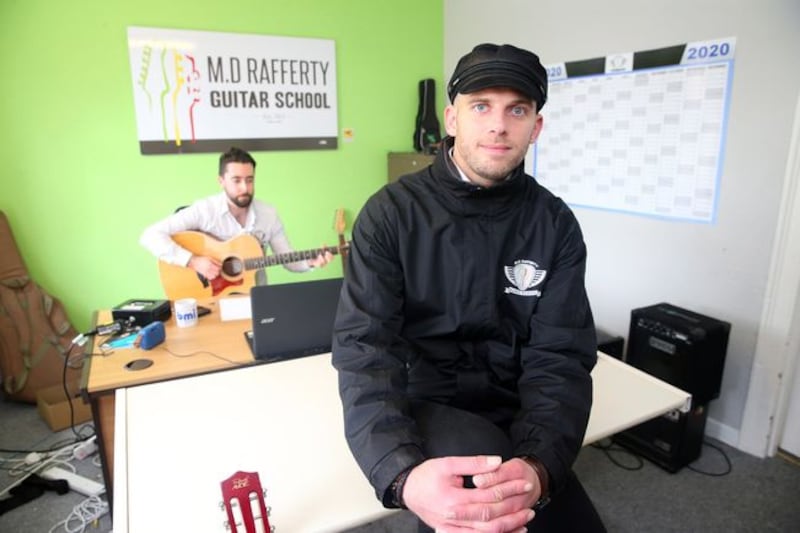
But he admitted he was initially apprehensive about the change but Mr Byrne was on hand to help students and parents with technical support.
“The only difference with online is you can’t physically jam with the students because there’s a couple of seconds’ delay,” he said.
The school offered some free lessons on Facebook and hosted lockdown gigs online every Saturday.
Mr Rafferty said tutors were able to access the government’s self-employed income support scheme. He also praised the school’s landlord for offering “minimal rent until January”.
“That’s been a big help,” he said,
Around 90 per cent of classes are still online, although the school reopened to some students at the start of this month.
“At the minute we just have a small number of students who couldn’t make that transition (online),” he said.
“We make sure we teach two metres apart (from students) and have sanitiser everywhere.”
Mr Rafferty said he aims to keep some classes online once lockdown is over.
“We have a lot of parents travelling up from Belfast and other places. It gives us the scope to say ‘you don’t need to travel up to the school’,” he said.
“We want to spread our wings so we aren’t just local. We’re set up so we can do that now.”
